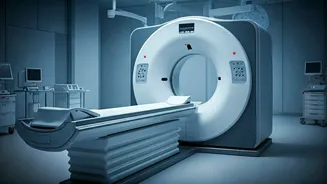Understanding Cancer Risks
Cancer, a formidable illness, necessitates heightened awareness. Understanding personal risk factors is a critical first step. Genetics, lifestyle choices,
and environmental exposures play pivotal roles in cancer development. Certain demographics might experience increased risk levels, therefore, individuals should have frequent checkups and awareness of early signs. Regular check-ups with a medical professional allow for the early detection of anomalies. Additionally, staying informed about the various types of cancer and their distinct symptoms empowers people to advocate for their health effectively, leading to earlier diagnosis and superior treatment results. Cancer risk is a complex issue, therefore, understanding these aspects can lead to a more personalized approach to maintaining health.
The Importance of Screening
Screening tests are an essential tool in proactive healthcare, particularly when it comes to early cancer detection. These tests, frequently performed on individuals lacking symptoms, assist in identifying cancer in its initial stages. Timely screenings can significantly improve treatment outcomes. Screening protocols vary based on age, gender, and family history. For instance, mammograms are crucial for women to screen for breast cancer, while colonoscopies are useful for detecting colon cancer. These screenings enable medical professionals to find cancerous tumors before they develop into more serious conditions, and in case of any anomaly, a proper and timeous diagnosis can lead to early intervention and improve the chances of a successful outcome.
Recommended Tests Unveiled
The oncologist highlights several important tests that everyone should be familiar with. First, regular mammograms are advised for women to screen for breast cancer. Second, the colonoscopy, a critical test for detecting colon cancer, is also emphasized. Third, the Pap smear and HPV tests, recommended for women, are vital for recognizing and preventing cervical cancer. Lastly, lung cancer screening, with low-dose CT scans, is critical for individuals with a history of smoking. These tests, when performed regularly, give the best opportunity for successful cancer treatment. Consulting with a healthcare provider is essential to determine the most appropriate tests for individual circumstances and risk factors.
Early Detection Benefits
Early cancer detection is crucial due to the increased treatment success rates that it brings. When cancer is diagnosed in its earliest stages, treatment options are often more effective, and the likelihood of recovery is significantly higher. Early detection may include less aggressive treatment regimens. Patients diagnosed with cancer at early stages may avoid invasive surgeries or extensive therapies, hence improving their quality of life during treatment and recovery. Regular screenings and prompt medical attention for symptoms are essential. It enables medical professionals to intervene before the cancer progresses, improving prognosis and providing a superior chance of long-term survival. Embracing proactive health measures is paramount.
Taking Action, Staying Vigilant
Proactive health management is an ongoing effort that is best achieved through combining screenings with a healthy lifestyle. Individuals should be aware of any changes in their bodies and consult healthcare professionals immediately if they notice any unusual symptoms. Maintaining a healthy lifestyle, including a balanced diet, regular exercise, and refraining from smoking, can reduce the risk of cancer. Being well-informed about family history and speaking to a healthcare provider about any concerns is equally important. These combined steps improve the chances of early detection and successful cancer management. Prioritizing one's health by understanding the significance of early detection and taking proactive steps can lead to improved outcomes and a better quality of life.














